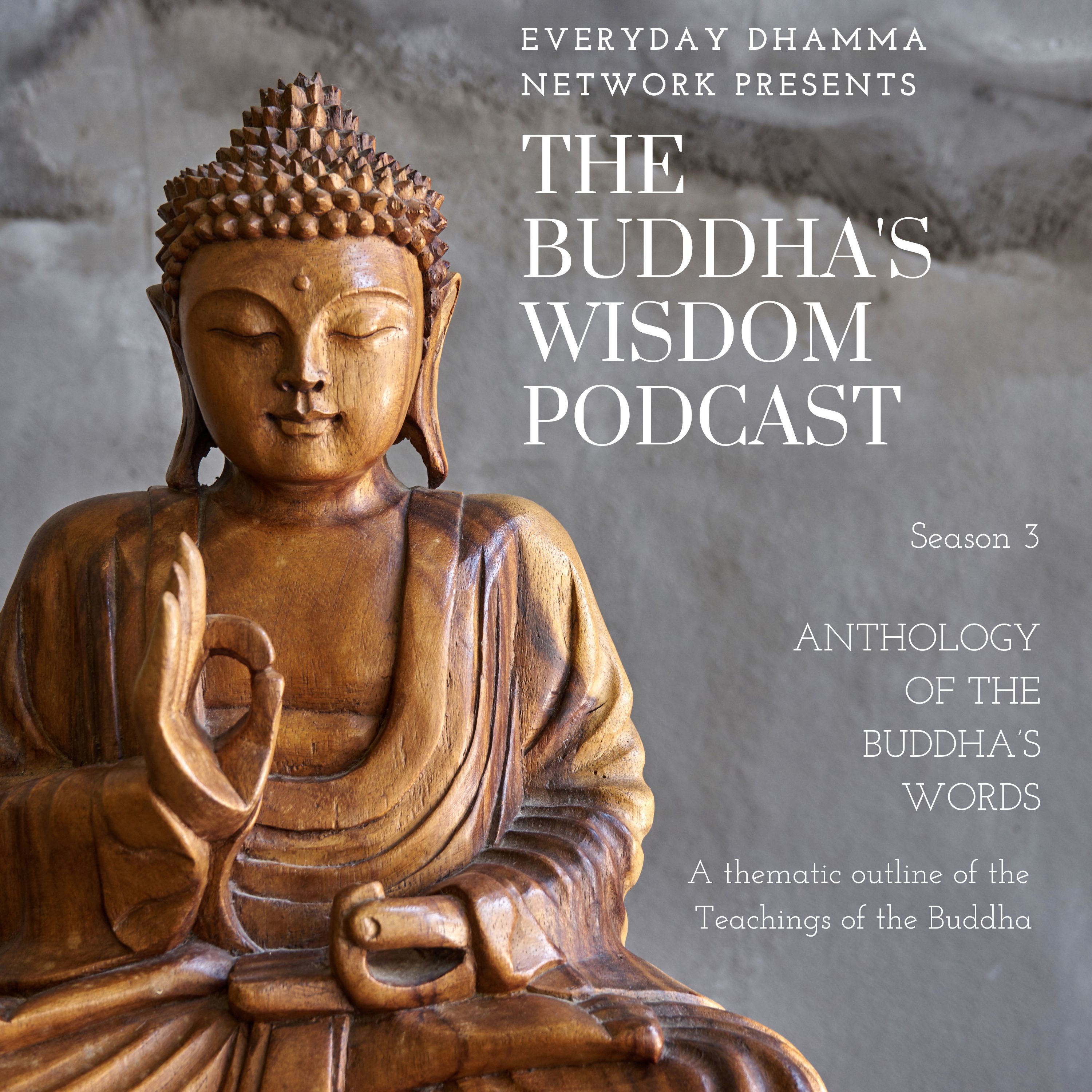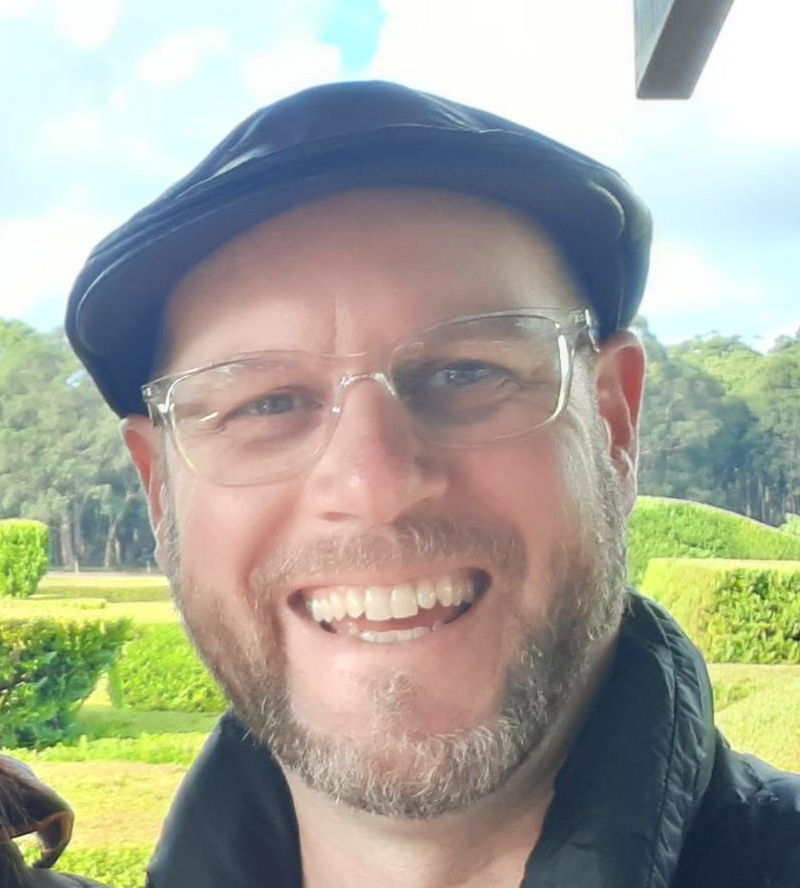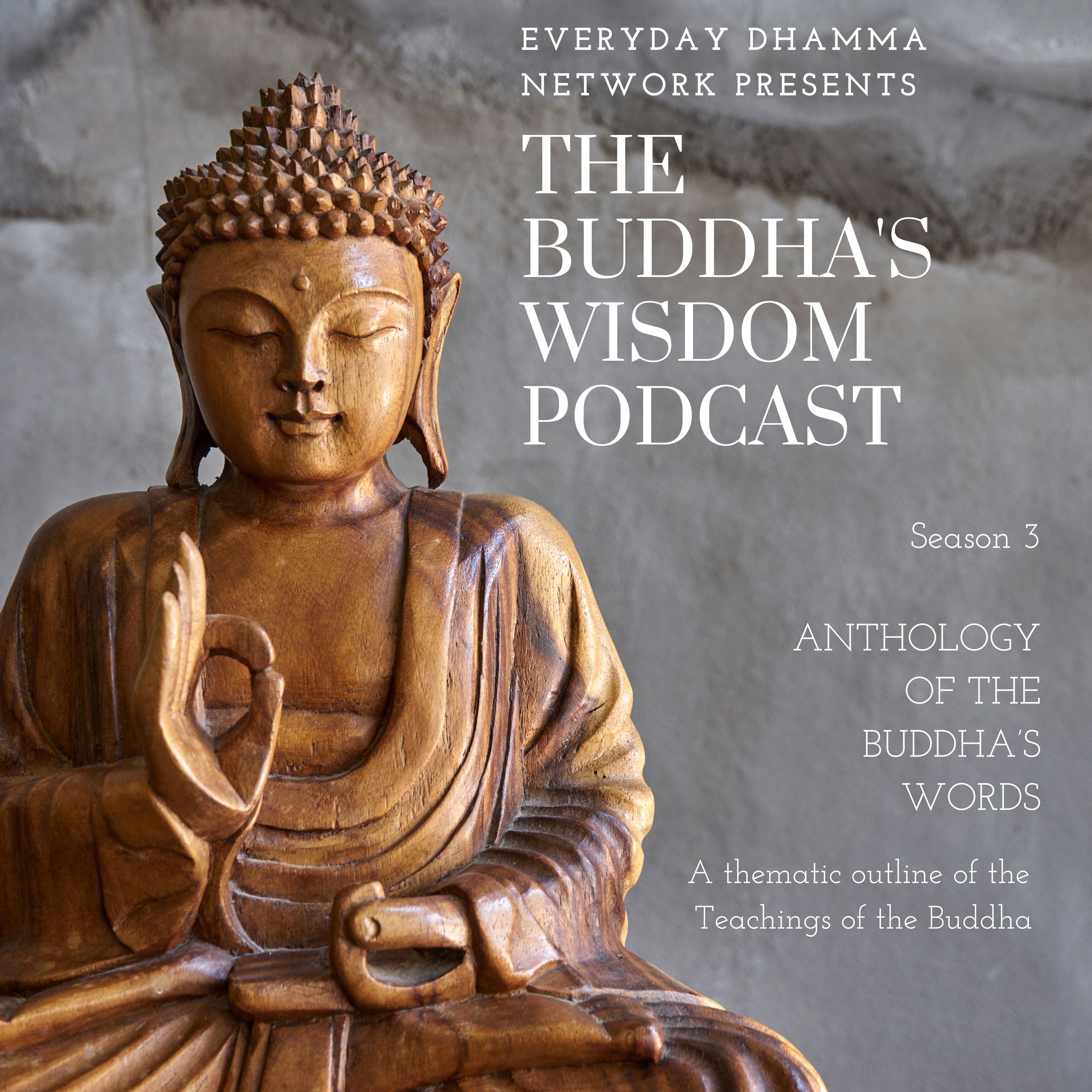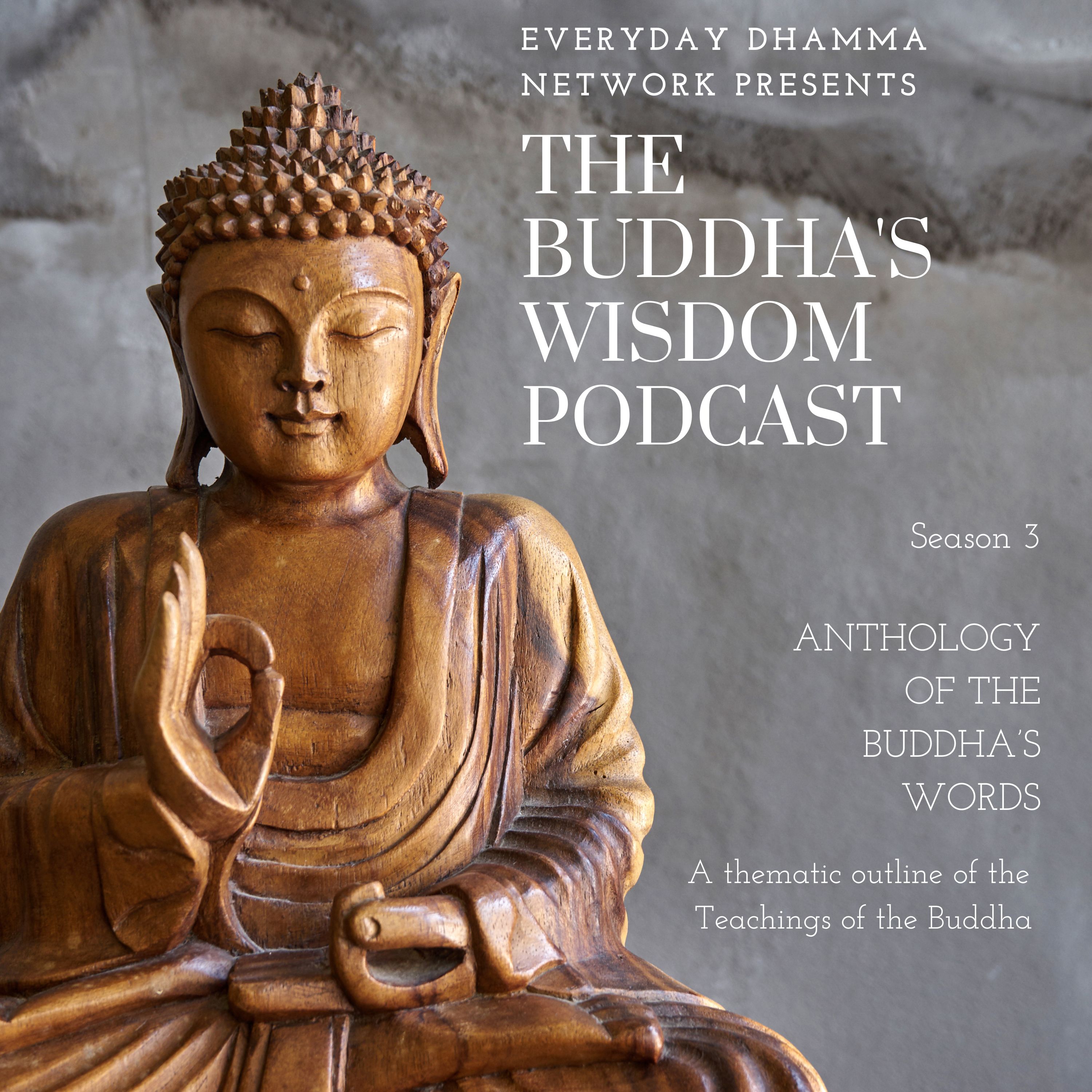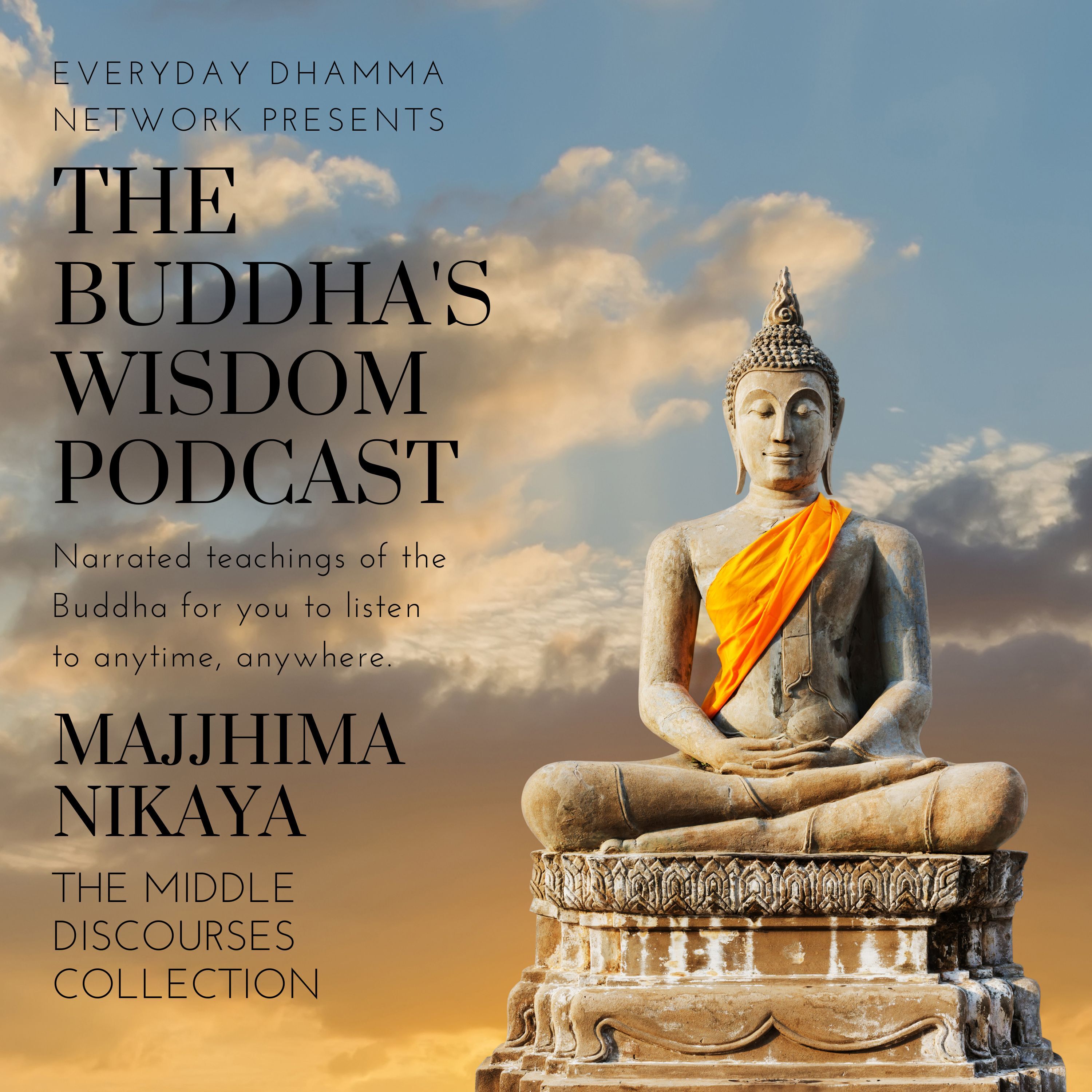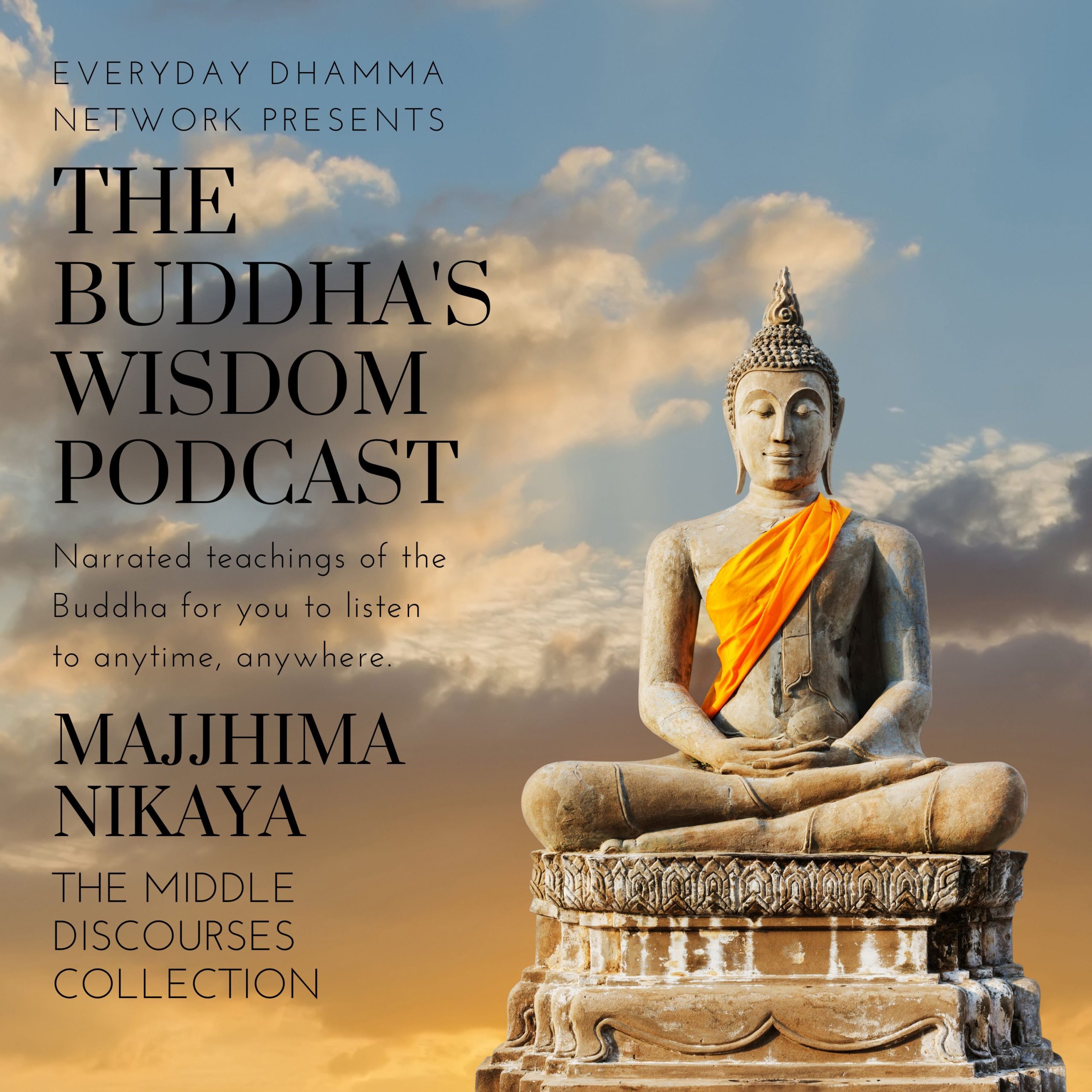Episode Transcript
## Sutta 1 - The Law of Kamma
“Mendicants, I declare these four kinds of deeds, having realized them with my own insight. What four?
1. There are dark deeds with dark results;
2. bright deeds with bright results;
3. dark and bright deeds with dark and bright results; and
4. neither dark nor bright deeds with neither dark nor bright results, which lead to the ending of deeds.
And what are dark deeds with dark results? It’s when someone makes hurtful choices by way of body, speech, and mind. Having made these choices, they’re reborn in a hurtful world, where hurtful contacts strike them. Touched by hurtful contacts, they experience hurtful feelings that are exclusively painful—like the beings in hell. These are called dark deeds with dark results.
And what are bright deeds with bright results? It’s when someone makes pleasing choices by way of body, speech, and mind. Having made these choices, they’re reborn in a pleasing world, where pleasing contacts strike them. Touched by pleasing contacts, they experience pleasing feelings of perfect happiness—like the gods of universal beauty. These are called bright deeds with bright results.
And what are dark and bright deeds with dark and bright results? It’s when someone makes both hurtful and pleasing choices by way of body, speech, and mind. Having made these choices, they are reborn in a world that is both hurtful and pleasing, where hurtful and pleasing contacts strike them. Touched by both hurtful and pleasing contacts, they experience both hurtful and pleasing feelings that are a mixture of pleasure and pain—like humans, some gods, and some beings in the underworld. These are called dark and bright deeds with dark and bright results.
And what are neither dark nor bright deeds with neither dark nor bright results, which lead to the ending of deeds? It’s the intention to give up dark deeds with dark results, bright deeds with bright results, and both dark and bright deeds with both dark and bright results. These are called neither dark nor bright deeds with neither dark nor bright results, which lead to the ending of deeds.
These are the four kinds of deeds that I declare, having realized them with my own insight.”
AN 4:232
## Sutta 2 - Why beings fare as they do after death
So I have heard. At one time the Buddha was wandering in the land of the Kosalans together with a large Saṅgha of mendicants when he arrived at a village of the Kosalan brahmins named Sālā.
The brahmins and householders of Sālā heard, “It seems the ascetic Gotama—a Sakyan, gone forth from a Sakyan family—while wandering in the land of the Kosalans has arrived at Sālā, together with a large Saṅgha of mendicants. He has this good reputation: ‘That Blessed One is perfected, a fully awakened Buddha, accomplished in knowledge and conduct, holy, knower of the world, supreme guide for those who wish to train, teacher of gods and humans, awakened, blessed.’ He has realized with his own insight this world—with its gods, Māras, and divinities, this population with its ascetics and brahmins, gods and humans—and he makes it known to others. He proclaims a teaching that is good in the beginning, good in the middle, and good in the end, meaningful and well-phrased. He reveals an entirely full and pure spiritual life. It’s good to see such perfected ones.”
Then the brahmins and householders of Sālā went up to the Buddha. Before sitting down to one side, some bowed, some exchanged greetings and polite conversation, some held up their joined palms toward the Buddha, some announced their name and clan, while some kept silent. Seated to one side they said to the Buddha:
“What is the cause, worthy Gotama, what is the reason why some sentient beings, when their body breaks up, after death, are reborn in a place of loss, a bad place, the underworld, hell? And what is the cause, worthy Gotama, what is the reason why some sentient beings, when their body breaks up, after death, are reborn in a good place, a heavenly realm?”
“Unprincipled and immoral conduct is the reason why some sentient beings, when their body breaks up, after death, are reborn in a place of loss, a bad place, the underworld, hell. Principled and moral conduct is the reason why some sentient beings, when their body breaks up, after death, are reborn in a good place, a heavenly realm.”
“We don’t understand the detailed meaning of the worthy Gotama’s brief statement. Worthy Gotama, please teach us this matter in detail so we can understand the meaning.”
“Well then, householders, listen and apply your mind well, I will speak.”
“Yes, worthy sir,” they replied. The Buddha said this:
“Householders, unprincipled and immoral conduct is threefold by way of body, fourfold by way of speech, and threefold by way of mind.
And how is unprincipled and immoral conduct threefold by way of body? It’s when a certain person kills living creatures. They’re violent, bloody-handed, a hardened killer, merciless to living beings.
They steal. With the intention to commit theft, they take the wealth or belongings of others from village or wilderness.
They commit sexual misconduct. They have sexual relations with women who have their mother, father, both mother and father, brother, sister, relatives, or clan as guardian. They have sexual relations with a woman who is protected on principle, or who has a husband, or whose violation is punishable by law, or even one who has been garlanded as a token of betrothal. This is how unprincipled and immoral conduct is threefold by way of body.
And how is unprincipled and immoral conduct fourfold by way of speech? It’s when a certain person lies. They’re summoned to a council, an assembly, a family meeting, a guild, or to the royal court, and asked to bear witness: ‘Please, worthy man, say what you know.’ Not knowing, they say ‘I know.’ Knowing, they say ‘I don’t know.’ Not seeing, they say ‘I see.’ And seeing, they say ‘I don’t see.’ So they deliberately lie for the sake of themselves or another, or for some trivial worldly reason.
They speak divisively. They repeat in one place what they heard in another so as to divide people against each other. And so they divide those who are harmonious, supporting division, delighting in division, loving division, speaking words that promote division.
They speak harshly. They use the kinds of words that are cruel, nasty, hurtful, offensive, bordering on anger, not leading to immersion.
They talk nonsense. Their speech is untimely, and is neither factual nor beneficial. It has nothing to do with the teaching or the training. Their words have no value, and are untimely, unreasonable, rambling, and pointless. This is how unprincipled and immoral conduct is fourfold by way of speech.
And how is unprincipled and immoral conduct threefold by way of mind? It’s when a certain person is covetous. They covet the wealth and belongings of others: ‘Oh, if only their belongings were mine!’
They have ill will and malicious intentions: ‘May these sentient beings be killed, slaughtered, slain, destroyed, or annihilated!’
They have wrong view. Their perspective is distorted: ‘There’s no meaning in giving, sacrifice, or offerings. There’s no fruit or result of good and bad deeds. There’s no afterlife. There’s no such thing as mother and father, or beings that are reborn spontaneously. And there’s no ascetic or brahmin who is rightly comported and rightly practiced, and who describes the afterlife after realizing it with their own insight.’ This is how unprincipled and immoral conduct is threefold by way of mind.
That’s how unprincipled and immoral conduct is the reason why some sentient beings, when their body breaks up, after death, are reborn in a place of loss, a bad place, the underworld, hell.
Householders, principled and moral conduct is threefold by way of body, fourfold by way of speech, and threefold by way of mind.
And how is principled and moral conduct threefold by way of body? It’s when a certain person gives up killing living creatures. They renounce the rod and the sword. They’re scrupulous and kind, living full of sympathy for all living beings.
They give up stealing. They don’t, with the intention to commit theft, take the wealth or belongings of others from village or wilderness.
They give up sexual misconduct. They don’t have sexual relations with women who have their mother, father, both mother and father, brother, sister, relatives, or clan as guardian. They don’t have sexual relations with a woman who is protected on principle, or who has a husband, or whose violation is punishable by law, or even one who has been garlanded as a token of betrothal. This is how principled and moral conduct is threefold by way of body.
And how is principled and moral conduct fourfold by way of speech? It’s when a certain person gives up lying. They’re summoned to a council, an assembly, a family meeting, a guild, or to the royal court, and asked to bear witness: ‘Please, worthy man, say what you know.’ Not knowing, they say ‘I don’t know.’ Knowing, they say ‘I know.’ Not seeing, they say ‘I don’t see.’ And seeing, they say ‘I see.’ So they don’t deliberately lie for the sake of themselves or another, or for some trivial worldly reason.
They give up divisive speech. They don’t repeat in one place what they heard in another so as to divide people against each other. Instead, they reconcile those who are divided, supporting unity, delighting in harmony, loving harmony, speaking words that promote harmony.
They give up harsh speech. They speak in a way that’s mellow, pleasing to the ear, lovely, going to the heart, polite, likable, and agreeable to the people.
They give up talking nonsense. Their words are timely, true, and meaningful, in line with the teaching and training. They say things at the right time which are valuable, reasonable, succinct, and beneficial. This is how principled and moral conduct is fourfold by way of speech.
And how is principled and moral conduct threefold by way of mind? It’s when a certain person is not covetous. They don’t covet the wealth and belongings of others: ‘Oh, if only their belongings were mine!’
They have a kind heart and loving intentions: ‘May these sentient beings live free of enmity and ill will, untroubled and happy!’
They have right view, an undistorted perspective: ‘There is meaning in giving, sacrifice, and offerings. There are fruits and results of good and bad deeds. There is an afterlife. There are such things as mother and father, and beings that are reborn spontaneously. And there are ascetics and brahmins who are rightly comported and rightly practiced, and who describe the afterlife after realizing it with their own insight.’ This is how principled and moral conduct is threefold by way of mind.
This is how principled and moral conduct is the reason why some sentient beings, when their body breaks up, after death, are reborn in a good place, a heavenly realm.
A person of principled and moral conduct might wish: ‘If only, when my body breaks up, after death, I would be reborn in the company of well-to-do aristocrats!’ It’s possible that this might happen. Why is that? Because they have principled and moral conduct.
A person of principled and moral conduct might wish: ‘If only, when my body breaks up, after death, I would be reborn in the company of well-to-do brahmins … well-to-do householders … the gods of the four great kings … the gods of the thirty-three … the gods of Yama … the joyful gods … the gods who love to imagine … the gods who control what is imagined by others … the gods of the Divinity’s host … the radiant gods … the gods of limited radiance … the gods of limitless radiance … the gods of streaming radiance … the gods of limited beauty … the gods of limitless beauty … the gods of universal beauty … the gods of abundant fruit … the gods of Aviha … the gods of Atappa … the gods fair to see … the fair seeing gods … the gods of Akaniṭṭha … the gods of the dimension of infinite space … the gods of the dimension of infinite consciousness … the gods of the dimension of nothingness … the gods of the dimension of neither perception nor non-perception.’ It’s possible that this might happen. Why is that? Because they have principled and moral conduct.
A person of principled and moral conduct might wish: ‘If only I might realize the undefiled freedom of heart and freedom by wisdom in this very life, and live having realized it with my own insight due to the ending of defilements.’ It’s possible that this might happen. Why is that? Because they have principled and moral conduct.”
When he had spoken, the brahmins and householders of Sālā said to the Buddha, “Excellent, worthy Gotama! Excellent! As if he were righting the overturned, or revealing the hidden, or pointing out the path to the lost, or lighting a lamp in the dark so people with clear eyes can see what’s there, worthy Gotama has made the teaching clear in many ways. We go for refuge to the worthy Gotama, to the teaching, and to the mendicant Saṅgha. From this day forth, may the worthy Gotama remember us as lay followers who have gone for refuge for life.”
MN 41 - Saleyyaka Sutta
## Sutta 3 - Kamma and its fruit
So I have heard. At one time the Buddha was staying near Sāvatthī in Jeta’s Grove, Anāthapiṇḍika’s monastery.
Then the student Subha, Todeyya’s son, approached the Buddha, and exchanged greetings with him. When the greetings and polite conversation were over, he sat down to one side and said to the Buddha:
“What is the cause, worthy Gotama, what is the reason why even among those who are human beings some are seen to be inferior and superior? For people are seen who are short-lived and long-lived, sickly and healthy, ugly and beautiful, insignificant and illustrious, poor and rich, from low and eminent families, witless and wise. What is the reason why even among those who are human beings some are seen to be inferior and superior?”
“Student, sentient beings are the owners of their deeds and heir to their deeds. Deeds are their womb, their relative, and their refuge. It is deeds that divide beings into inferior and superior.”
“I don’t understand the meaning of what the worthy Gotama has said in brief, without explaining the details. Worthy Gotama, please teach me this matter in detail so I can understand the meaning.”
“Well then, student, listen and apply your mind well, I will speak.”
“Yes, worthy sir,” replied Subha. The Buddha said this:
“Take some woman or man who kills living creatures. They’re violent, bloody-handed, a hardened killer, merciless to living beings. Because of undertaking such deeds, when their body breaks up, after death, they’re reborn in a place of loss, a bad place, the underworld, hell. If they’re not reborn in a place of loss, but return to the human realm, then wherever they’re reborn they’re short-lived. For killing living creatures is the path leading to a short lifespan.
But take some woman or man who gives up killing living creatures. They renounce the rod and the sword. They’re scrupulous and kind, living full of sympathy for all living beings. Because of undertaking such deeds, when their body breaks up, after death, they’re reborn in a good place, a heavenly realm. If they’re not reborn in a heavenly realm, but return to the human realm, then wherever they’re reborn they’re long-lived. For not killing living creatures is the path leading to a long lifespan.
Take some woman or man who habitually hurts living creatures with a fist, stone, rod, or sword. Because of undertaking such deeds, after death they’re reborn in a place of loss … or if they return to the human realm, they’re sickly …
But take some woman or man who would never hurt living creatures with a fist, stone, rod, or sword. Because of undertaking such deeds, after death they’re reborn in a heavenly realm … or if they return to the human realm, they’re healthy …
Take some woman or man who is irritable and bad-tempered. Even when lightly criticized they lose their temper, becoming annoyed, hostile, and hard-hearted, and displaying annoyance, hate, and bitterness. Because of undertaking such deeds, after death they’re reborn in a place of loss … or if they return to the human realm, they’re ugly …
But take some woman or man who isn’t irritable and bad-tempered. Even when heavily criticized, they don’t lose their temper, become annoyed, hostile, and hard-hearted, or display annoyance, hate, and bitterness. Because of undertaking such deeds, after death they’re reborn in a heavenly realm … or if they return to the human realm, they’re lovely …
Take some woman or man who is jealous. They envy, resent, and begrudge the possessions, honor, respect, reverence, homage, and veneration given to others. Because of undertaking such deeds, after death they’re reborn in a place of loss … or if they return to the human realm, they’re insignificant …
But take some woman or man who is not jealous … Because of undertaking such deeds, after death they’re reborn in a heavenly realm … or if they return to the human realm, they’re illustrious …
Take some woman or man who doesn’t give to ascetics or brahmins such things as food, drink, clothing, vehicles; garlands, fragrance, and makeup; and bed, house, and lighting. Because of undertaking such deeds, after death they’re reborn in a place of loss … or if they return to the human realm, they’re poor …
But take some woman or man who does give to ascetics or brahmins … Because of undertaking such deeds, after death they’re reborn in a heavenly realm … or if they return to the human realm, they’re rich …
Take some woman or man who is obstinate and arrogant. They don’t bow to those they should bow to. They don’t rise up for them, offer them a seat, make way for them, or honor, respect, esteem, or venerate those who are worthy of such. Because of undertaking such deeds, after death they’re reborn in a place of loss … or if they return to the human realm, they’re reborn in a low class family …
But take some woman or man who is not obstinate and arrogant … Because of undertaking such deeds, after death they’re reborn in a heavenly realm … or if they return to the human realm, they’re reborn in an eminent family …
Take some woman or man who doesn’t approach an ascetic or brahmin to ask: ‘Sir, what is skillful and what is unskillful? What is blameworthy and what is blameless? What should be cultivated and what should not be cultivated? What kind of action will lead to my lasting harm and suffering? Or what kind of action will lead to my lasting welfare and happiness?’ Because of undertaking such deeds, after death they’re reborn in a place of loss … or if they return to the human realm, they’re witless …
But take some woman or man who does approach an ascetic or brahmin to ask: ‘Sir, what is skillful and what is unskillful? What is blameworthy and what is blameless? What should be cultivated and what should not be cultivated? What kind of action will lead to my lasting harm and suffering? Or what kind of action will lead to my lasting welfare and happiness?’ Because of undertaking such deeds, when their body breaks up, after death, they’re reborn in a good place, a heavenly realm. If they’re not reborn in a heavenly realm, but return to the human realm, then wherever they’re reborn they’re very wise. For asking questions of ascetics or brahmins is the path leading to wisdom.
So it is the way people live that makes them how they are, whether short-lived or long-lived, sickly or healthy, ugly or lovely, insignificant or illustrious, poor or rich, in a low class or eminent family, or witless or wise.
Sentient beings are the owners of their deeds and heir to their deeds. Deeds are their womb, their relative, and their refuge. It is deeds that divide beings into inferior and superior.”
When he had spoken, Subha said to him, “Excellent, worthy Gotama! Excellent! As if he were righting the overturned, or revealing the hidden, or pointing out the path to the lost, or lighting a lamp in the dark so people with clear eyes can see what’s there, worthy Gotama has made the Teaching clear in many ways. I go for refuge to the worthy Gotama, to the teaching, and to the mendicant Saṅgha. From this day forth, may the worthy Gotama remember me as a lay follower who has gone for refuge for life.”
MN 135 - Culakammavibhanga Sutta
